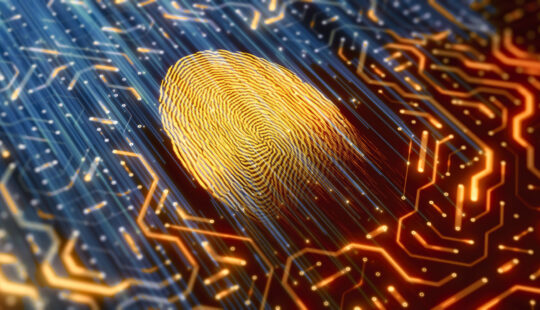WALLDORF — SAP SE (NYSE: SAP) today released findings from a survey shedding light on the trends, opportunities and challenges of shaping B2B enterprise software procurement.
The findings of the survey “2022 B2B Digital Buyers’ Journey: Forces Shaping the Future of Enterprise Procurement,” conducted by Futurum Research and sponsored by SAP, unpack the forces that are shaping both the demand for and the process of enterprise software procurement.
“Dramatic changes in the global economy, ongoing supply chain disruptions, the rise of a highly distributed workforce and the rapid digitalization of the consumer have pushed organizations to adapt swiftly and evolve to survive – not just from a procurement perspective but also their core business model,” said Kahly Berg, Senior VP, Digital Experiences, SAP SE. “This survey proves that the digital marketplace is here to stay and that resources like the SAP Store site and SAP.com are key to the success of SAP partners, customers and peers in the industry.”
Approximately 1,000 B2B decision-makers from small to enterprise-level companies across nine major industries responded to the survey, which also served as a follow-up to the “2019 B2B Digital Buyers’ Journey: Trends, Challenges and Predictions.”
Notable findings from the new report include:
As business requirements change, so too does the type of software enterprises need to procure.
- Of organizations responding, 89% say they changed their business model during the past two years (with 39% saying the change was significant).
- Of responding organizations, 41% say their software or solution needs have significantly changed over the past two years.
- Of our panel, 78% say they’re looking for ways to streamline the procurement process, while 27% say their current process never or only occasionally operates as efficiently as it did in the past.
The future of procurement is digital.
- A majority of procurement professionals (54%) say they want to be purchasing primarily online by 2024, either through a vendor’s own site or a digital marketplace.
- Of respondents, 44% cited having a one-stop shop for multiple vendors as the most important feature in a digital marketplace.
- Of respondents, 16% expect to purchase at least half of their enterprise software through a digital marketplace.
Both corporate executives and procurement teams have become more involved in the procurement process.
- Of respondents, 61% say corporate executives are more involved in the purchasing process than they were two years ago. In contrast, our 2019 study panel indicated that less than 30% of C-level executives were active in any given part of the purchasing journey.
- Of procurement teams, 51% are now significantly involved in determining enterprise software needs.
Distributed decision processes are becoming the new normal.
- A majority of enterprises believe it takes four or more team members per functional group to make a final procurement decision.
- A quarter of enterprises with 50,000 or more employees say they need at least 11 corporate executives to sign off on a typical procurement.
- Of enterprises, 34% say a lack of group consensus is a significant concern, impediment, or risk to successful procurement of enterprise software solutions.
Visit the SAP News Center. Follow SAP on Twitter at @SAPNews.
Media Contact:
Cindy McKendry, +1 (503) 231-7274, cindy.mckendry@sap.com, PST
SAP Press Room; press@sap.com
This document contains forward-looking statements, which are predictions, projections, or other statements about future events. These statements are based on current expectations, forecasts, and assumptions that are subject to risks and uncertainties that could cause actual results and outcomes to materially differ. Additional information regarding these risks and uncertainties may be found in our filings with the Securities and Exchange Commission, including but not limited to the risk factors section of SAP’s 2021 Annual Report on Form 20-F.
© 2022 SAP SE. All rights reserved.
SAP and other SAP products and services mentioned herein as well as their respective logos are trademarks or registered trademarks of SAP SE in Germany and other countries. Please see https://www.sap.com/copyright for additional trademark information and notices.



